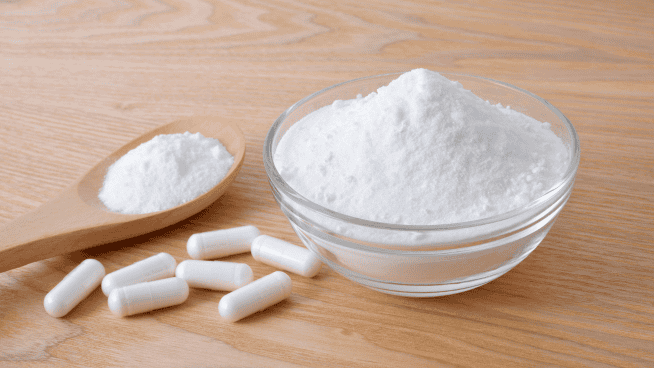The Teenage Athlete Meal Plan
A teenage metabolism is a well-oiled machine raring to go at all hours of the day, only further compounded by high levels of exercise through sports and extra-curricular activities.
In general, most teenagers need to eat a greater number of calories than their adult counterparts to help support proper growth throughout the maturation process and support high levels of intense activity. However, I must preface this entire article with the understanding that I AM NOT a registered dietician or a nutritionist, and every case is unique when it comes to the individual needs of an athlete.
I do hold my precision nutrition certification and have spent many years coaching teenage athletes, which has led me to the point that I can confidently provide sound nutrition advice, practice, and principles. This is much different from prescribing a specific meal plan to an athlete to treat, diagnose, or solve any issue or conflict they may have.
If an athlete has diabetes, food allergies, need certain supplements prescribed to them, or even wants to know exactly how much they should consume of something down to the last gram, I’m not the guy.
See a true expert.
All these things aside, I have laid out what may be a template for a typical high school athlete, to support proper energy levels throughout a full day of school and sports practice.
Check it out below.
The Teenage Diet Plan
7:00 am (Wake-up)
- Drink 16oz of lukewarm water
7:30 am
- One cup of Greek yogurt
- Blueberries, raspberries, honey, and low sugar granola.
10:30 am
- One sliced apple
- Two tablespoons of peanut butter
12:30 pm
- “Burrito Bowl” with chicken or steak
- White or brown rice
- Peppers
- Black or pinto beans
- Avocado
- Salsa
3:00 pm (pre-practice)
- A scoop of whey protein powder in almond milk or water
- Banana or fruit of choice
6:30 pm
- Six to eight ounces of salmon
- One to two handfuls of sweet potato fries
- Asparagus
8:30 pm
- Popcorn
- Halo Top ice cream
Skip the Supplements
Sports supplements promise to improve sports performance. But few have proved to help, and some may harm.
By eating a healthy, nutritious diet, you need not worry about supplements for your athlete. Make sure your child is eating balanced meals.
Hydrate
Water is essential to everything. When you sweat during exercise, it’s easy to become overheated, headachy, and worn out, especially in hot or humid weather. Even mild dehydration can affect an athlete’s physical and mental performance.
There are no one set of guidelines for how much water to drink. How much fluid each person needs depends on their age, size, level of physical activity, and environmental temperature.
Athletes should drink before, during, and after exercise. Don’t wait until you feel thirsty because thirst signifies that your body has needed liquids for a while
Wrap Up
There are many ways a teenage athlete could eat, but the day I laid out above is just a fundamental example of what one may easily be able to replicate and spin-off of on their day-to-day.
One of the major core tenants I preach with all my clients, not just teenagers, is to do the best you can at all times. Good enough is better than not at all, meaning if you can only manage to get one serving of vegetables in a day, make sure you do rather than just throwing in the towel and saying it was a wasted day and you will retry for ‘perfect’ tomorrow.
Perfect does not exist, especially in nutrition.
Teenagers need a lot of food to fuel their busy lifestyles and get enough nutrition, hence why I preach following the 80/20 rule. Eat ‘clean’ and as best as you can 80% of the time, and the remaining 20% of the time, eat what you enjoy!
Read more:
RECOMMENDED FOR YOU
MOST POPULAR
The Teenage Athlete Meal Plan
A teenage metabolism is a well-oiled machine raring to go at all hours of the day, only further compounded by high levels of exercise through sports and extra-curricular activities.
In general, most teenagers need to eat a greater number of calories than their adult counterparts to help support proper growth throughout the maturation process and support high levels of intense activity. However, I must preface this entire article with the understanding that I AM NOT a registered dietician or a nutritionist, and every case is unique when it comes to the individual needs of an athlete.
I do hold my precision nutrition certification and have spent many years coaching teenage athletes, which has led me to the point that I can confidently provide sound nutrition advice, practice, and principles. This is much different from prescribing a specific meal plan to an athlete to treat, diagnose, or solve any issue or conflict they may have.
If an athlete has diabetes, food allergies, need certain supplements prescribed to them, or even wants to know exactly how much they should consume of something down to the last gram, I’m not the guy.
See a true expert.
All these things aside, I have laid out what may be a template for a typical high school athlete, to support proper energy levels throughout a full day of school and sports practice.
Check it out below.
The Teenage Diet Plan
7:00 am (Wake-up)
- Drink 16oz of lukewarm water
7:30 am
- One cup of Greek yogurt
- Blueberries, raspberries, honey, and low sugar granola.
10:30 am
- One sliced apple
- Two tablespoons of peanut butter
12:30 pm
- “Burrito Bowl” with chicken or steak
- White or brown rice
- Peppers
- Black or pinto beans
- Avocado
- Salsa
3:00 pm (pre-practice)
- A scoop of whey protein powder in almond milk or water
- Banana or fruit of choice
6:30 pm
- Six to eight ounces of salmon
- One to two handfuls of sweet potato fries
- Asparagus
8:30 pm
- Popcorn
- Halo Top ice cream
Skip the Supplements
Sports supplements promise to improve sports performance. But few have proved to help, and some may harm.
By eating a healthy, nutritious diet, you need not worry about supplements for your athlete. Make sure your child is eating balanced meals.
Hydrate
Water is essential to everything. When you sweat during exercise, it’s easy to become overheated, headachy, and worn out, especially in hot or humid weather. Even mild dehydration can affect an athlete’s physical and mental performance.
There are no one set of guidelines for how much water to drink. How much fluid each person needs depends on their age, size, level of physical activity, and environmental temperature.
Athletes should drink before, during, and after exercise. Don’t wait until you feel thirsty because thirst signifies that your body has needed liquids for a while
Wrap Up
There are many ways a teenage athlete could eat, but the day I laid out above is just a fundamental example of what one may easily be able to replicate and spin-off of on their day-to-day.
One of the major core tenants I preach with all my clients, not just teenagers, is to do the best you can at all times. Good enough is better than not at all, meaning if you can only manage to get one serving of vegetables in a day, make sure you do rather than just throwing in the towel and saying it was a wasted day and you will retry for ‘perfect’ tomorrow.
Perfect does not exist, especially in nutrition.
Teenagers need a lot of food to fuel their busy lifestyles and get enough nutrition, hence why I preach following the 80/20 rule. Eat ‘clean’ and as best as you can 80% of the time, and the remaining 20% of the time, eat what you enjoy!
Read more:










